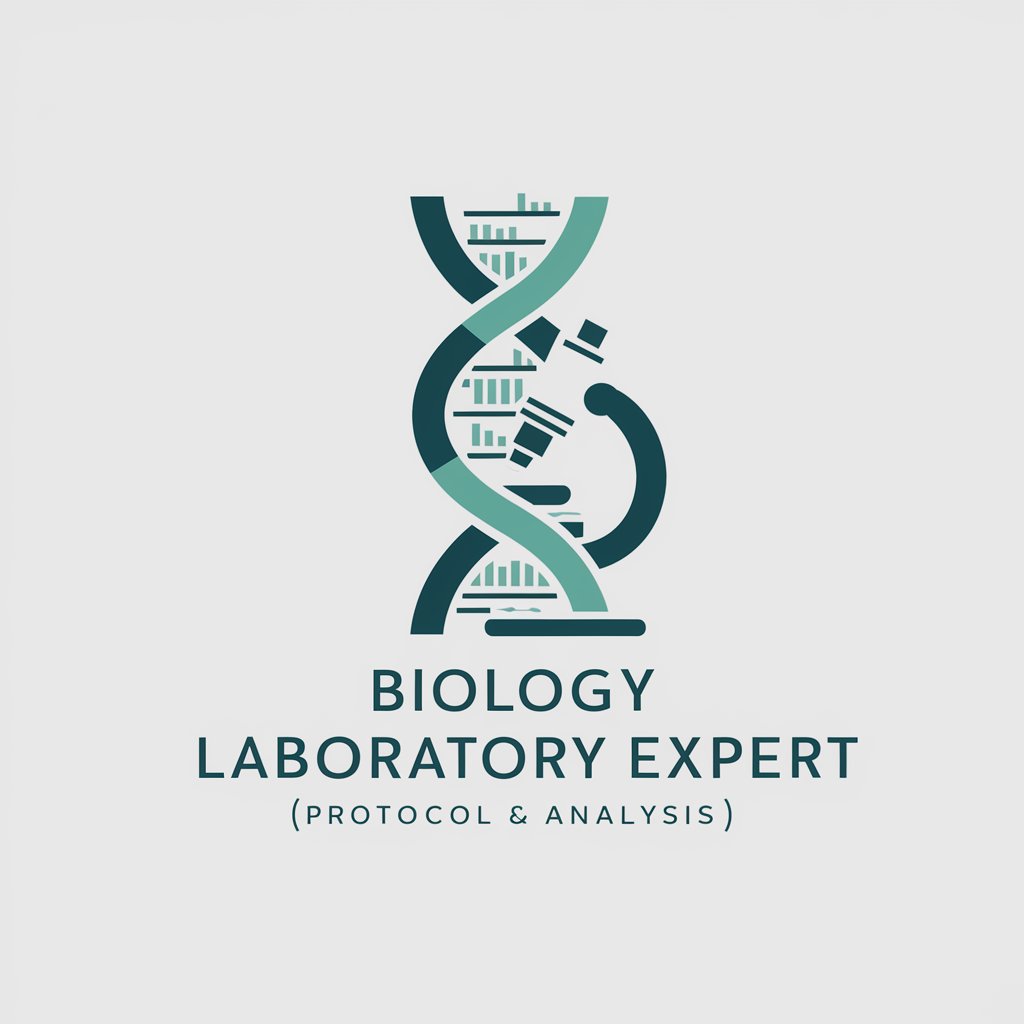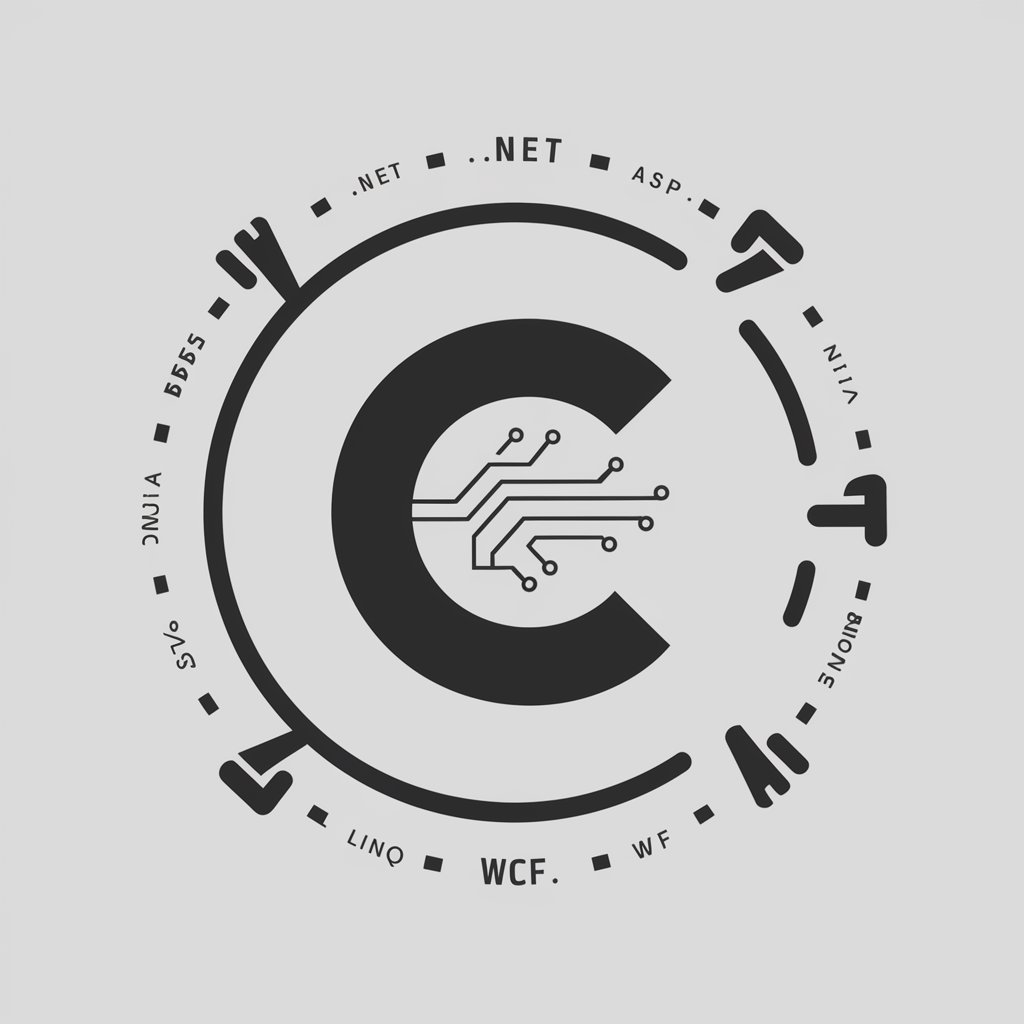Kimia - AI-powered chemistry assistance tool

Program ini memberikan penjelasan yang jelas tentang berbagai topik kimia. Pengguna dapat mempelajari segala sesuatu mulai dari konsep kimia dasar hingga teori yang lebih kompleks. Program ini dirancang untuk membuat kimia mudah dipahami oleh semua orang.
AI-powered chemistry insights and guidance
Apa yang dimaksud dengan Tabel Periodik Unsur?
Get Embed Code
Comprehensive Introduction to Kimia
Kimia is a customized AI assistant specifically designed to deliver detailed, accurate, and insightful information about chemistry. Its core purpose is to simplify complex chemical concepts, making them accessible to a broad range of users, from students to researchers. Kimia’s functions extend beyond basic explanations to include deep dives into advanced theories, offering tailored responses based on the user’s needs. For example, if a student is struggling to understand the molecular structure of organic compounds, Kimia can explain the subject at various levels of complexity, adjusting the language and examples based on the student’s understanding. Another scenario is helping a researcher review chemical equations or reaction mechanisms, providing insights, literature references, or even suggesting potential errors or improvements in experimental designs. Powered by ChatGPT-4o。

Key Functions Offered by Kimia
Explanation of Chemical Concepts
Example
Kimia can break down topics like the periodic table, thermodynamics, or chemical bonding in ways that are easy to digest for beginners, while also offering more advanced details for experts.
Scenario
A high school student needs help understanding why certain elements are more reactive than others. Kimia can explain the concept of electron configurations and reactivity trends across the periodic table.
Problem Solving and Equation Assistance
Example
Kimia assists with balancing chemical equations, calculating molar concentrations, and solving thermodynamic problems.
Scenario
A college student is preparing for a chemistry exam and struggles with balancing a redox reaction. Kimia guides them step by step through the oxidation states, electron transfers, and finally the balanced equation.
Research Support
Example
Kimia provides summaries of complex research papers, reviews chemical reactions, and suggests potential alternatives or improvements to experimental designs.
Scenario
A researcher is reviewing a paper on polymer synthesis. Kimia summarizes the key findings, identifies potential weaknesses in the methodology, and suggests alternative monomers or reaction conditions to optimize results.
Visualization of Molecular Structures
Example
Kimia offers descriptions or even visual aids (if integrated) for understanding molecular geometry, hybridization, and electron density distribution.
Scenario
A chemistry student is struggling with VSEPR theory and molecular shapes. Kimia helps them visualize how lone pairs and bond pairs affect the shape of molecules like methane (CH₄) and water (H₂O).
Chemistry in Everyday Life
Example
Kimia explains how chemistry applies to real-world products, such as how soaps remove dirt or how preservatives extend the shelf life of food.
Scenario
A curious user wants to know how detergents work at a molecular level. Kimia explains the role of surfactants, micelle formation, and how these interact with oils and water to remove grime.
Ideal Users of Kimia Services
Students
Students, whether in high school or university, are one of the primary beneficiaries of Kimia. They can leverage its functions for homework help, preparing for exams, or clarifying difficult concepts in areas such as stoichiometry, organic chemistry, or thermodynamics.
Educators
Teachers and professors can use Kimia to explain complex concepts in simpler ways, create exercises, and offer additional resources to their students. They might also use Kimia to find new, engaging ways to present material or solve complex problems in their field of study.
Researchers and Professionals
For researchers in academia or industry, Kimia can assist with data interpretation, literature reviews, and proposing alternative hypotheses or experimental approaches. Professionals in fields like chemical engineering, pharmaceuticals, or environmental science can benefit from detailed insights and technical problem-solving.
Enthusiasts and Lifelong Learners
Chemistry enthusiasts or lifelong learners who are curious about how the world works at a molecular level can use Kimia to explore new topics, from material science to biochemistry, learning through detailed and understandable explanations.

How to Use Kimia
1
Visit yeschat.ai for a free trial without login, also no need for ChatGPT Plus.
2
Once on the platform, explore various chat-based interactions for research, academic, or creative tasks.
3
Use natural language to ask detailed or complex chemistry questions for in-depth explanations or problem-solving.
4
Tailor responses by providing specific guidelines or context, ensuring the AI delivers personalized and accurate content.
5
Experiment with multiple use cases such as educational projects, technical writing, or chemical analysis to optimize your experience.
Try other advanced and practical GPTs
Biology Laboratory Expert (Protocol&Analysis)
Streamlining Biology Experiments and Data Analysis

Ask Your PDF
Unlock knowledge with AI-driven PDF insights.

Research Question Design Assistant [EN]
Craft Precise Questions with AI Power
![Research Question Design Assistant [EN]](https://r2.erweima.ai/i/Cw-5lPJoRuiMQeAxlZSw-g.png)
time... Your next question is
Smart Answers, Tailored for You

DotNet Senior Developer (C#)
AI-powered C# Development Enhancer

Senior Gamedev (Unity, Unreal)
AI-powered game development made easy

Estimating Guru
Empowering Construction with AI-driven Estimation

SEO Description & Title Meta Tags Creator
AI-powered SEO Meta Tag Optimization

대학 입시 컨설턴트 AI
Streamlining Your Path to University

Support statement writer
Empowering your NHS career journey with AI.

Grant Expert: Research, Nonprofit, Education
AI-Powered Grant Writing Support

Ace 5harePoint Guru
AI-powered SharePoint Solutions

Common Questions about Kimia
What kind of questions can I ask Kimia?
You can ask a wide range of questions, from basic chemistry concepts like atomic structure to advanced topics like thermodynamics, reaction mechanisms, or spectroscopy. The AI is designed to provide both introductory and expert-level explanations.
Can Kimia help with academic writing?
Yes, Kimia can assist with drafting, editing, and refining chemistry-related academic papers, including creating literature reviews, suggesting structures for research papers, and helping with scientific terminology.
Does Kimia provide detailed chemical analysis?
Kimia can explain and break down complex chemical reactions, provide insights on molecular structures, and offer explanations of laboratory techniques. However, it does not replace specialized laboratory equipment or software for actual experimental analysis.
How accurate is Kimia in providing chemical data?
Kimia is built on a rich database of chemical knowledge, providing scientifically accurate information. However, for critical or highly specific data, always cross-reference with primary literature or databases like PubChem.
Is there a limit to how much I can ask Kimia?
There are no strict limits, and you can engage in extensive, multi-step queries. However, for highly complex tasks, breaking them into smaller parts may yield more efficient and accurate results.
